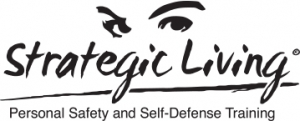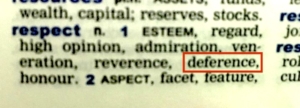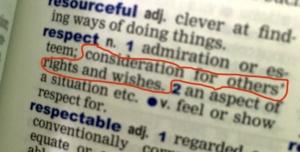 Good morning, today is Wednesday July 21, 2021. Another nice, if hazy, morning in the Emerald City. And I’m quite happy that most classes this month have been in-person.
Good morning, today is Wednesday July 21, 2021. Another nice, if hazy, morning in the Emerald City. And I’m quite happy that most classes this month have been in-person.
In these classes we cover recognizing when someone bumps into one of your boundaries, and how you can fix that boundary. Most of the time, when we set boundaries, we talk in conversational tones. That is, at the volume you normally use when having a conversation with another person. But sometimes you want to get louder. I’ve been asking my students WHEN they want to get loud. The answers are interesting, but usually are in response to a different but related question.
Students tend to reply:
- When they’re getting angry
- When they think someone isn’t listening
- When too many people are talking
- When frustrated with someone else
- When they feel they’re not being heard
- Or when they feel they’re not being taken seriously
I think the question they are hearing is “when DO you get louder,” rather than “when do you WANT TO get louder.” They’re thinking about what others do to that trigger their LOUD response. Given that the question is in the context of a self-defense class (students are assuming a stressful interaction, rather than a fun party or celebration), it’s not surprising they’d look to emotions that center around anger. The question I’m trying to ask is more strategic. When do you WANT to get loud? When do you think getting loud is a USEFUL response?
See, if you get loud when you get angry, you risk being played. Someone just has to figure out your hot buttons, and WHAM! they can get the reaction THEY want. People who are manipulative do this all the time. It’s one of the easiest ways to shift “responsibility” for a bad interaction from them to you. And when your knee-jerk reactions are triggered, your safety decisions are usually less sound.
I think there are these three situations when you may WANT to get loud:
- When you want to attract attention, you want other people around to look. Most perpetrators want to commit assault without interference, in relative isolation
- When you believe the perpetrator thinks you’ll be easy to intimidate, or have been intimidated.
- And when you need to get physical and hit the perpetrator, when you need to use physical self-defense skills to disable the perpetrator so that you can safely escape.
And in our self-defense classes we do practice various strike to vulnerable targets. It’s a LOT easier done in-person, more challenging in the virtual world.
And when we practice our strikes, we always use our voices. LOUDLY.
Going forward, most classes will be in-person. Those through Seattle Central College and Bellevue College may still be virtual this Fall, we’re just not sure right now about available space on campus. My Fall schedule should be rolling out in the next week or so.
And that’s it for today. Stay safe, life life.


 According to this same dictionary, here’s another aspect to respect.
According to this same dictionary, here’s another aspect to respect. Welcome to July! When I think of July, fireworks and BBQ are on the top of my brain. We celebrate July 4th, and the founding of America about 245 years ago. We celebrate independence and freedom. Today we live in unusual times. And we are confronted with competing visions of independence and freedom.
Welcome to July! When I think of July, fireworks and BBQ are on the top of my brain. We celebrate July 4th, and the founding of America about 245 years ago. We celebrate independence and freedom. Today we live in unusual times. And we are confronted with competing visions of independence and freedom.